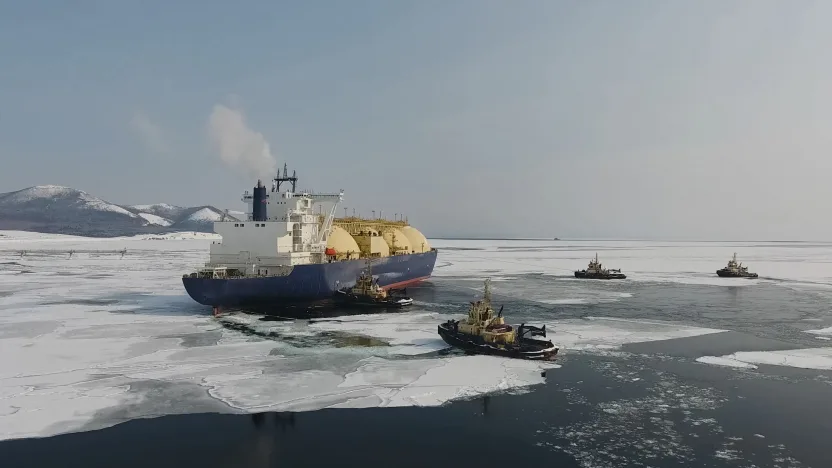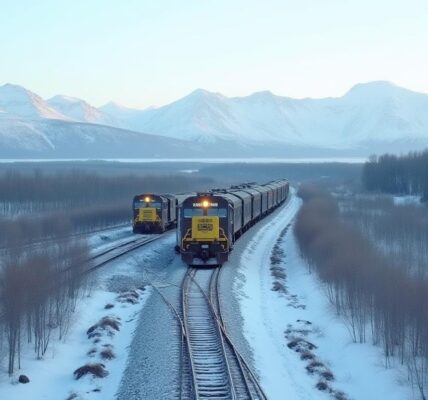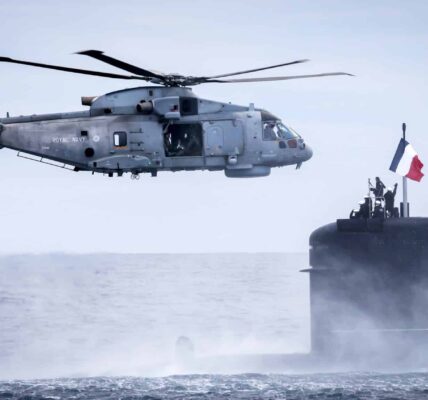Climate change creates a new battleground for the U.S., Russia and China
The battle for control of the Arctic Circle is, er, heating up. The Associated Press reported that Nome, Alaska will be the site of America’s first deepwater Arctic port — a $600 million facility that will play host to cruise ships, cargo boats and Navy vessels. It will join a beefed-up military presence that includes an Army airborne division. “The way you have a presence in the Arctic is to be able to have military assets and the infrastructure that supports those assets,” said U.S. Sen. Dan Sullivan (R-Alaska).
Rising global temperatures are thawing out the ice that once covered the Arctic Ocean much of the year, the Council on Foreign Relations explained, which “has piqued the economic interests of oil-hungry great powers” including China and Russia. Will the Arctic be the next great Cold War battleground?
Why the sudden interest in the Arctic?
It’s newly accessible. “The vast sea ice that covers the Arctic Ocean is melting rapidly due to climate change,” Politico reported, and could be completely ice-free during the summer as soon as 2035. That has created new shipping lanes as well as new possibilities for “natural resource extraction” — that is, drilling for oil and natural gas. That means a number of nations are racing for the chance to establish a presence in the region.
Who is competing?
Eight countries with territory in the region are on the Arctic Council: Canada, Denmark, Finland, Iceland, Norway, Russia, Sweden, and the United States. In the era of “Great Power competition,” though, Russia and China stand out. “Despite its military problems in Ukraine, Russia remains a formidable potential adversary in the Arctic,” Abbie Tingstad and Yuliya Shokh wrote for The Hill. The country’s Northern Fleet has made annual trips to the region for the last decade, practicing “large-scale amphibious assault landings, raids, and reconnaissance.” And China — while it doesn’t possess territory on the Arctic — is also showing interest, the Brookings Institution noted. “China seeks to become a ‘polar great power'” and sees the Arctic as “ripe for rivalry and extraction.”
What is at stake?
Plenty. The BBC reported the Arctic region could be home 160 billion barrels of oil and 30% of the planet’s undiscovered natural gas. And because the Arctic is mostly water — unlike Antarctica, a land mass — there is no treaty protecting it from international development. “Commercial industry stands to gain access to billions of dollars’ worth of resources—in the forms of oil, natural gas, critical minerals, and fisheries,” Foreign Policy reported. But there’s also plenty of room for consequences. The increased competition in the region will “accelerate sea ice melt, ocean acidification, and rising temperatures.” That’s bad for the planet and for people: “Arctic nations, Indigenous populations, and environmental groups” are already facing increased tensions as a result of the rivalries.
Who is winning?
Not the United States. “At the moment, the military balance in the Arctic is heavily weighted towards Russia,” one expert told Reuters. That’s because Russia has a head start: Its bases in the region outnumber NATO’s by “about a third.” While the United States is just now establishing its first deepwater port on the Arctic, “Russia has invested heavily in ports, infrastructure and vessels to develop and protect the Northern Sea Route.” It also has seven nuclear-powered icebreaker ships, in addition to 30 diesel-powered icebreakers. The U.S. and China, meanwhile, each have two diesel-powered icebreakers. (The U.S. plans to build six more icebreakers.)
What’s next?
It’s not just ships and armies that matter above the Arctic Circle. So do diplomats. NBC News reported that the United States is preparing to open a small new diplomatic mission, called an “American Presence Post,” in Tromsoe, Norway. It will be the northernmost diplomatic post in the world. It will employ exactly one staffer, a U.S. diplomat with a “consul” title.
If climate change has created a new Arctic competition, it also presents challenges. Politico reported that U.S. bases in Alaska and Greenland have suffered damage to buildings and runways because of thawing permafrost. A changing Arctic landscape has made the new competition possible. How it keeps changing may decide who wins.





Your article helped me a lot. Thanks!